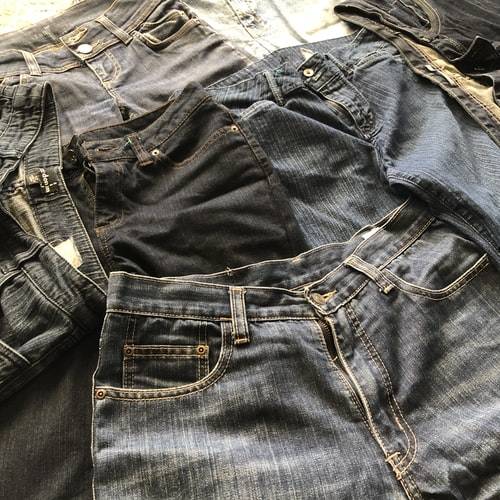
Goal 12: Responsible Consumption and Production
8 Reasons To Be More Sustainable With... Responsible Consumption And Production
Circular fashion, beer made from uneaten bread and ugly fruit and veg: just some of the ingenious new ways to produce and consume.
By Charlotte Brohier
11 April 2019
Circular fashion, beer made from uneaten bread and ugly fruit and veg: just some of the ingenious new ways to produce and consume.
We're getting a little carried away
We have an abundance of natural resources but, in short, we’re using them all wrong. At present, we consume far more than our planet can keep providing. If we continue like this and our population reaches its projected 9.6 billion by 2050, we will need almost three Earth-like planets to maintain our current lifestyle.
Water, water everywhere...
griculture is the biggest user of water worldwide, and irrigation claims close to 70% of all fresh water for human use. Unfortunately, we don’t have that much. Yes, we’re surrounded by vast oceans, but only 3% of the world’s water is fresh (and most of that is currently frozen in the polar regions). We’re using more than nature can produce and dumping industrial toxins into much of it – which sounds a bit like shooting ourselves in the foot.
Waste not, want not?
We dispose of one-third of all the food we produce - a staggering 1.3 billion tons every year. Meanwhile, almost 2 billion people don’t have enough food to eat. Considering the vast investment we make into food production, this doesn’t appear to add up.
Eat ugly food
There are plenty of ways we can make a difference, from carrying reusable bags to refusing plastic bottles – and buying imperfect produce. Ugly food, funny fruit… whatever you call it, buy more of it. Many fruits and vegetables are thrown out because they don’t look quite right. Buying them keeps them in the food chain, and out of the landfill.
Putting the ethics into aesthetics
Fashion, like food, is one of life’s great pleasures – but the environmental impact of the fashion industry is immense. The production of textiles creates 20% of global waste water and around 10% of global carbon emissions, which is more than international flights and maritime shipping put together. Over its lifetime, from growing the cotton to dying it, manufacturing, and then laundering once bought by the consumer, a pair of jeans uses an average of 10,000 liters of water – that’s as much water as one person drinks in a decade.
Circular denim
In 2013, Canadian-born textile industry veteran Bert van Son created MUD Jeans – the world’s first circular denim brand. Jeans are produced as sustainably as possible, using up to 40% recycled denim. But here’s what makes them unique: customers can either buy them, or lease them. For the lease price, jeans can be repaired and after a year, swapped for a new pair, or returned for upcycling or recycling. When upcycled, they’re sold as vintage and named after their former owner. If they’re recycled, they’re shredded and combined with virgin cotton to become jeans all over again.
Recycle your office
In the US alone, it is estimated that 8.5 million tons of F-waste (office furniture and equipment) are sent to landfills every year. But, it seems, for every wasteful industry, there’s also opportunity. Since its inception in 2009, Canadian company Green Standards has been taking equipment that corporations no longer need and giving it to non-profits. The company offsets its costs by selling some of the high-value items and recycling those with high metal content. So far, they have negotiated $25 million of in-kind donations to over 4,500 community organisations throughout North America.
The best thing since sliced bread
In the UK, 44% of bread is never consumed. In 2015, British entrepreneur Tristram Stuart was inspired by ancient beer recipes to find a new use for all these leftovers. And so, Toast Ale was born. Here’s the science: the carbohydrates in the grains are converted to simple sugars by enzymes, which ferment in the presence of yeast and produce alcohol. And here’s the good news: Toast has upcycled nearly 1 million slices of bread to date and produced over 300,000 litres of beer.
100% of profits from sales of Goal 12 #TOGETHERBANDs go to City Harvest, Shivia and Women Working Worldwide